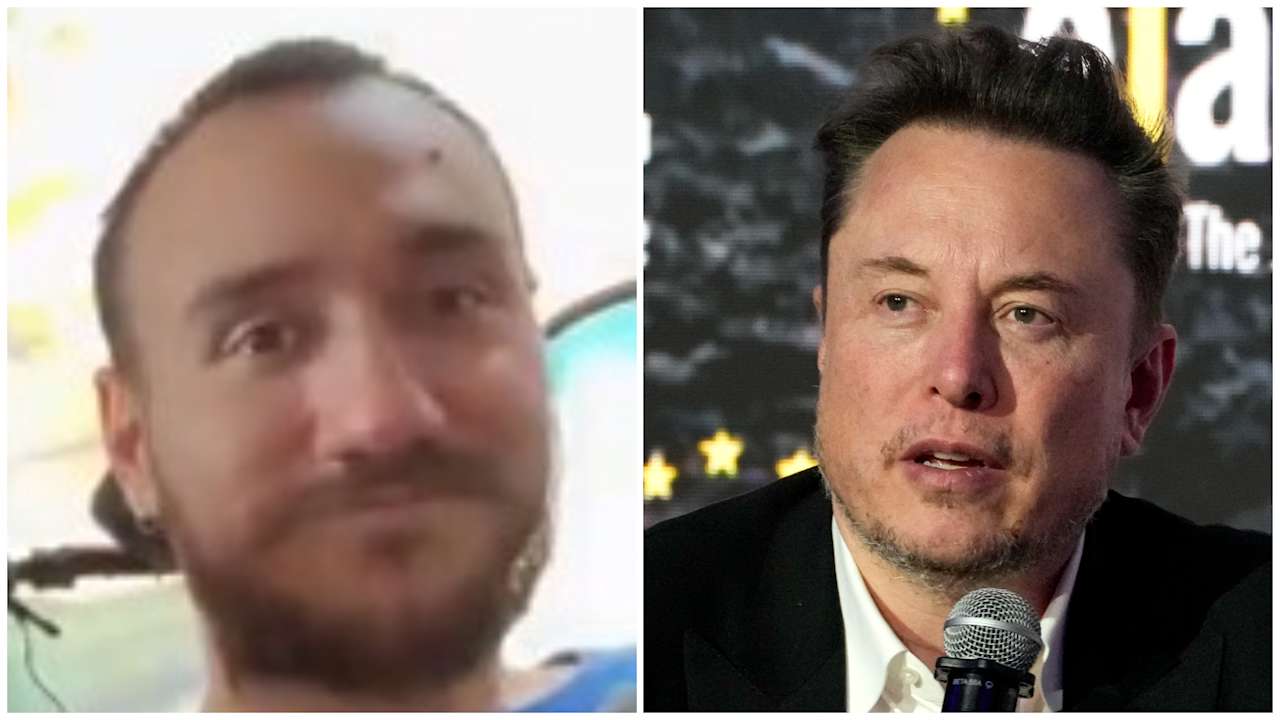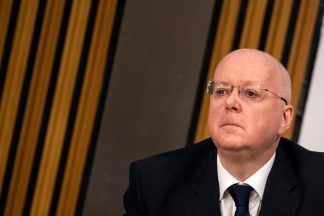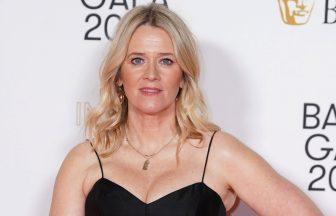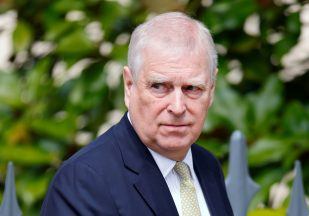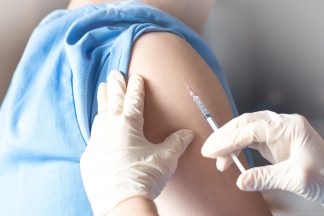By Shalet Serrao, ITV News Assistant News Editor
Elon Musk’s technology start-up Neuralink has revealed its first human test subject to receive a brain implant.
Noland Arbaugh, 29, was named as the volunteer during a livestream on X, formerly known as Twitter.
Mr Arbaugh, who is paralysed below the shoulder, received the implant in January and said he was now able to play chess online.
“If y’all can see the cursor moving around the screen, that’s all me,” he said, during the livestream. “It’s pretty cool, huh?”
Neuralink, which was co-founded by Mr Musk in 2016, uses brain-computer interface (BCI), which analyses brain neural signals and translates them into commands that can control external devices.
A social media post by Mr Musk in January announced the product’s name as Telepathy, saying initial users would “be those who have lost the use of their limbs”.
“Imagine if Stephen Hawking could communicate faster than a speed typist or auctioneer. That is the goal,” the post read.
Mr Arbaugh, who became a quadriplegic after a driving accident, said that the surgery to get the implant was “super easy” and that he was “released from the hospital a day later”.
Currently, Mr Arbaugh seems to have exhibited no cognitive impairements after the surgery.
The procedure involves a surgical robot designed to insert the threads of the implant into the appropriate part of the brain.
Mr Musk had previously said that it would not require anaesthesia and would be an hour long.
Neuralink received a green light by the Food and Drug Administration (FDA) last year to begin initial trails, and began recruiting patients in the fall.
In January, Mr Musk tweeted on his platform X that the first human subject to receive the impant was “doing well”.
Mr Aubaugh, who was also seen playing Civilization VI on the livestream, said that he had given up trying to play the game.
“You all [Neuralink] gave me the ability to do that again and [I] played for eight hours straight,” he said.
Neuralink is not the first company to successfully work in the area of brain-computer implants.
Other firms – such as New York’s Precision Neuroscience, Texas-based Paradromics and Blackrock Neurotech and Synchron – have all developed similar systems.
Synchron has even tested BCI technology in human patients using less invasive methods.
In 2021, Synchron’s chief executive, Thomas Oxley, handed his X account over to Philip O’Keefe, a patient who could not move his hands due to Amyotrophic Lateral Sclerosis (ALS).
Mr O’Keefe used Synchron’s BCI implant to tweet on Oxley’s page: “Hello, world! Short tweet. Monumental progress.”
While Neuralink’s capabilities are not new, its popularity is due to Mr Musk’s high profile, whose other companies include Tesla and SpaceX.
Currently, the company has not made public details about ongoing trials nor has it given an indication about how many human participants are involved.
Neuralink did not respond to ITV News’ request for a comment.
Follow STV News on WhatsApp
Scan the QR code on your mobile device for all the latest news from around the country


